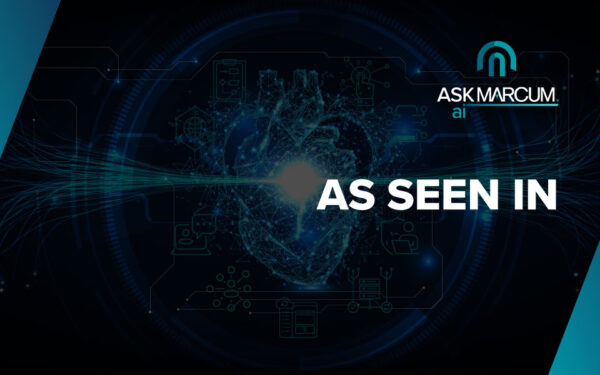Tax Technology
In the new hybrid workforce era, many business leaders have refined their technology focus to enhancing agility, improving efficiency and accelerating their speed-to-market.
But during this transformational focus, these same business leaders have also seen client demands increase, staff work compression and resource stagnation. Work has become more complex, and there has never been a greater volume of challenges being faced. While all of this may take some time to manage through, each industry will ultimately benefit from the significant innovation that lies ahead. Entirely new practice areas are being invented, old ones are being reimagined, and every day services are expanding, and all with technology at the core.
Being at the precipice of change, Marcum Technology, and its technology incubator Marcum Labs, has been working in this new frontier and driving digital transformation and becoming digital ready.
Mirroring the needs of all organizations, their model and functional approach are rooted in the following objectives:
- Improve the delivery, quality and efficiency of our work product, in order to elevate the opportunity for and ability of our industry professionals to positively impact clients;
- Enrich and compound the value created with digitally enhanced deliverables for the profession; and
- Introduce market-facing solutions that demonstrate possibility and re-invention across staff, vendors, client processes and deliverables.
Marcum has not only seen these changes manifest themselves in clients but has brought the necessary technology solutions to life through digital accelerator programs and Marcum Labs, by creating new technology solutions to work process challenges by bringing together industry leaders, technologists and practitioners to solve everyday business challenges.
Once a tax process is identified as a digital candidate, Marcum Technology introduces Intelligent Automation and Robotic Process Automation (RPA) to help implement automated workflows across complex system and ultimately alleviate staff compression.
A great use for RPA was found in the previously laborious Sales & Use Tax (SUT) and 1099 filing realm, the new technologies implemented in these areas have proven successful in automating SUT filings across various jurisdictions and enabling clients to self-file, saving some clients upwards of hundreds of hours a month on what would normally be time spent compiling and submitting data to state taxing agencies and alleviating the staffing crunch felt by accountants.
In addition to staffing challenges, the “technical debt” of maintaining old or outdated technologies can’t be overstated. Many businesses are currently at similar crossroads: do I pour money into keeping old tried and true desktop systems running or do I think more progressively and spend the time and effort migrating to new cloud-based software?
In many instances, these decisions center around accounting systems. Specifically, there are increasing discussions around the maturity and cloud capabilities of financial systems such as QuickBooks Desktop vs. QuickBooks Online, or the other products dozens of products being used by our clients.
As such, Marcum Cloud was developed, providing clients the opportunity to continue using the tools they are already accustomed to, establishing a cloud readiness strategy for them and eliminating the maintenance overhead around their core financial system. The Marcum Cloud data center is a unique facility that protects and secures client data and provides flexibility, productivity, and greater efficiencies.
With the new value and transformation nature of technology in the profession, technology is helping lead the way for a new chapter in the industry and its professionals, who are embracing thought-provoking challenges, elevating their expertise and delivering increased value to all their clients.




















